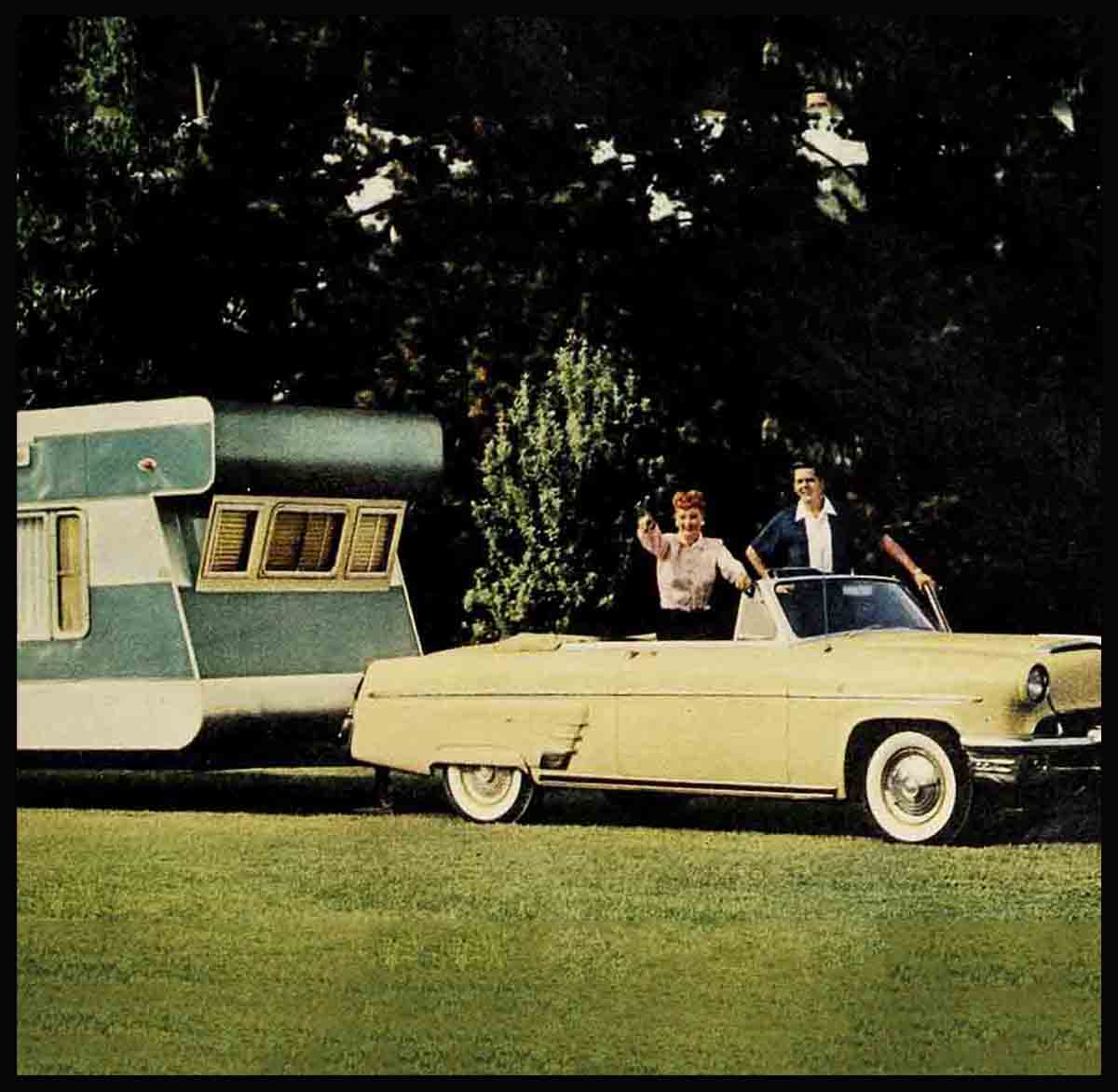
Living On Wheels—Lucille Ball & Desi Arnaz
One afternoon after she had finished her umpteenth I Love Lucy television film, Lucille Ball, in her delightfully addle-pated but highly efficient way, decided to organize a weekend vacation trip to Palm Springs.
In the livingroom of her ranch house out in the San Fernando Valley, the tall carrot-head began to check a list of essentials required for the desert holiday. Bed linen, spice cabinet, stationery, canasta decks, paints and easel, and scrapbooks.
As she checked off each item, Lucy added it to the pile of paraphernalia in the front hall. As the pile mounted, the hall receded until Desi, coming in from the sunlit outdoors, tripped and fell across the fishing gear.
“Lu-cee,” he shouted ominously.
From the kitchen: “Yes, dear?”
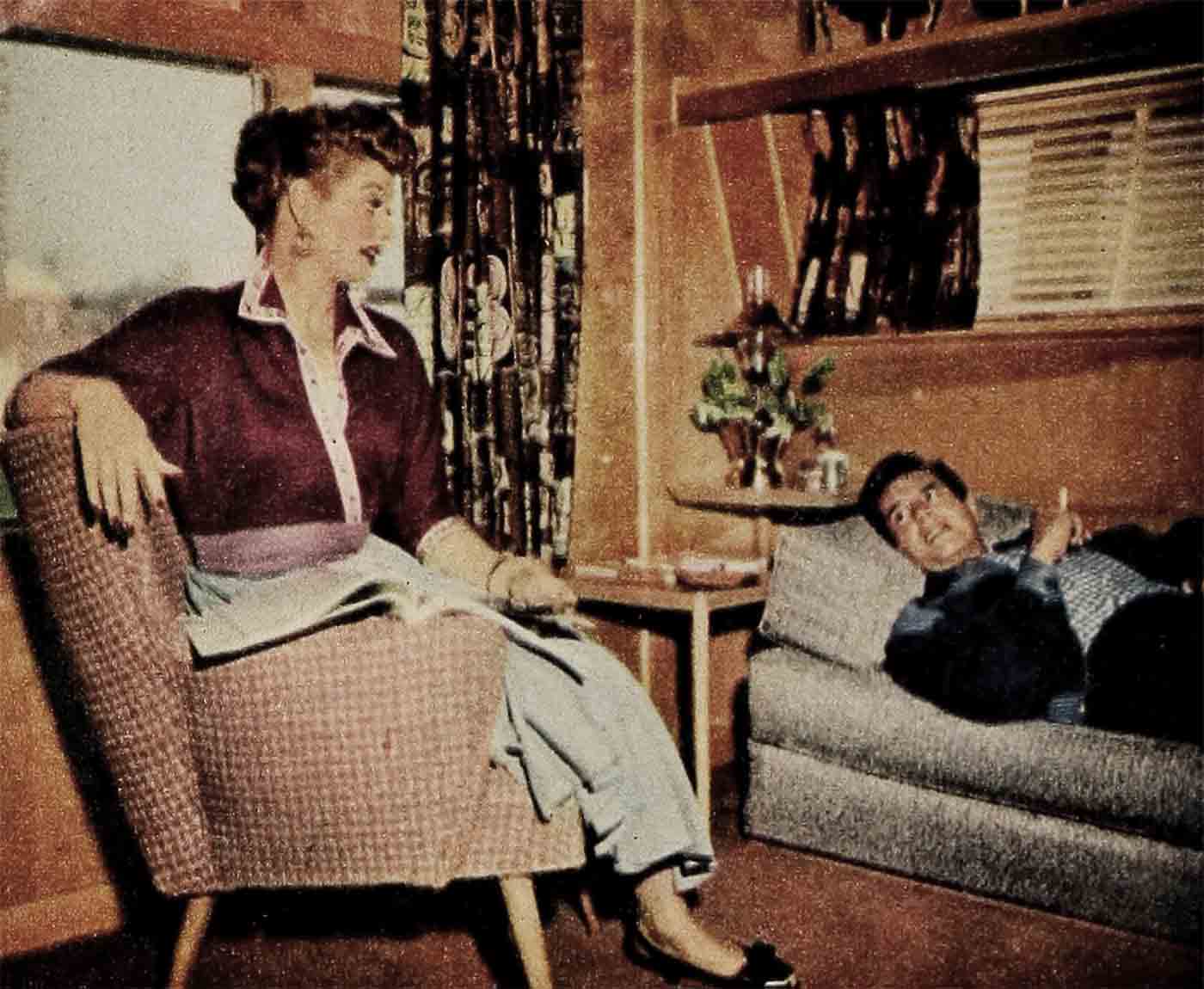
“Wha’s all thees stuff?” Desi demanded, his Cuban accent growing hotter with the throbbing in his ankle. “Is pick-up time for the Salvation Army maybe?”
The preoccupied housewife, Mrs. Desiderio Arnaz shook her head. “We don’t have time for jokes,” she said. “Get up on your feet and load these things into the car.”
In simulated agony—after all, he is an actor—Desi slowly raised himself. He looked at the pile of equipment Lucy had stacked for the trip. He looked twice because he couldn’t believe it the first time.
“I’m not going,” he declared. “I’m not going to Palm Springs, have people say, ‘Look those crazy gypsies. Everything they have they take with them!’ ” Pointing an accusing finger at his wife, he continued, ‘Last time you promised that if we take a trip, we travel light. You call thees”—his arm swept the room—“light?”
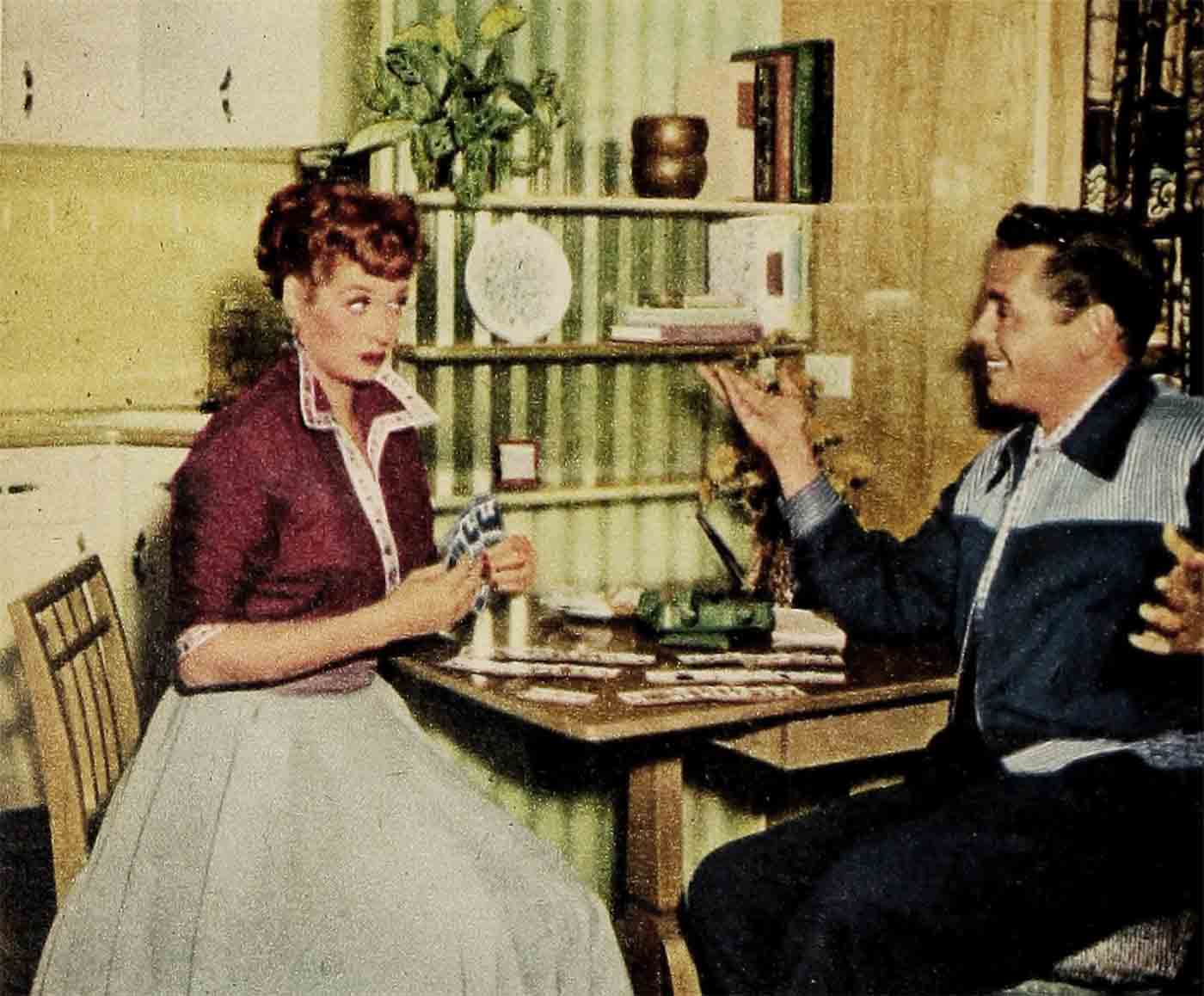
“All I promised,” Lucy said sweetly, “was that I would bring the bare essentials. And if I’m going to enjoy my vacation, these things are essential.”
“But, honey, we can only stay three days.”
“Three days or three months—I need my home right along with me to be happy.”
Desi muttered something dark and bitter and husbandly. To Lucy, however, he said, “Why don’t you put thees house on wheels? Maybe then you be happy?”
Many months later when he and Lucy had signed to star in The Long, Long Trailer at MGM, Desi recalled this particular conversation with his wife.
He was talking to director Vincente Minnelli. Vincente said, “We’re having a forty-foot mobile home driven here from Alma, Michigan. What you’ve got to do for the picture, Desi, is to practice parking and driving the trailer before the actual camera work begins.”
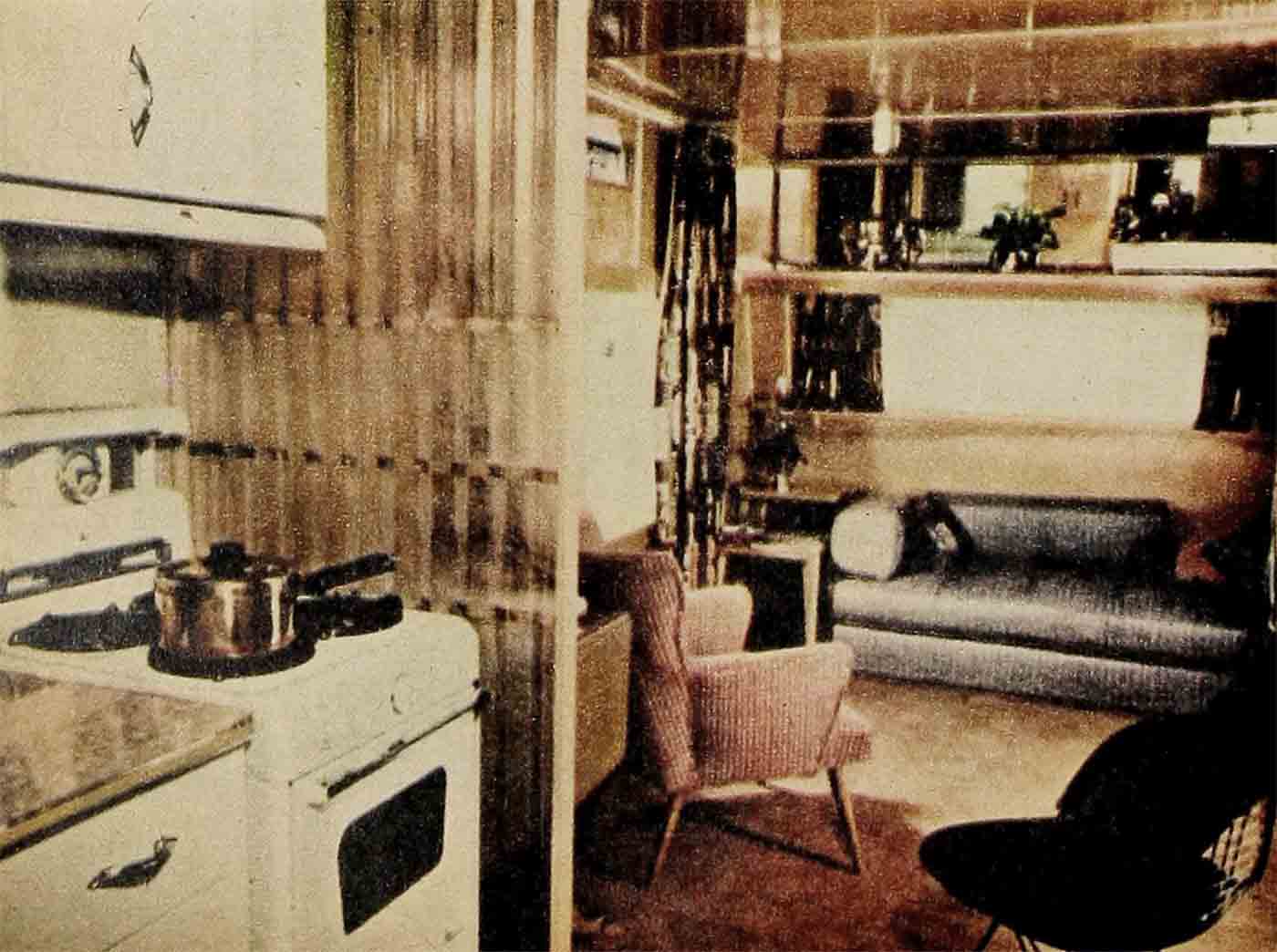
Desi’s eyes popped. “Did you say ‘mobile home?’ ”
Minnelli nodded. “That’s a fancy name for a trailer.”
Desi smacked his hands with glee. “That’s exactly what we need,” he said. “Lucy and I—whenever we take a trip, she has to take everything. How much do thees mobile homes cost, Vince? Where can we get one?”
Minnelli shrugged a shoulder. “I don’t know much about them,” he said. “There’s a fellow on the lot somewhere who represents the New Moon people. Maybe you can talk to him.”
“You say his name is New Moon?” Desi asked.
“That’s the name of the company that makes these trailers.”
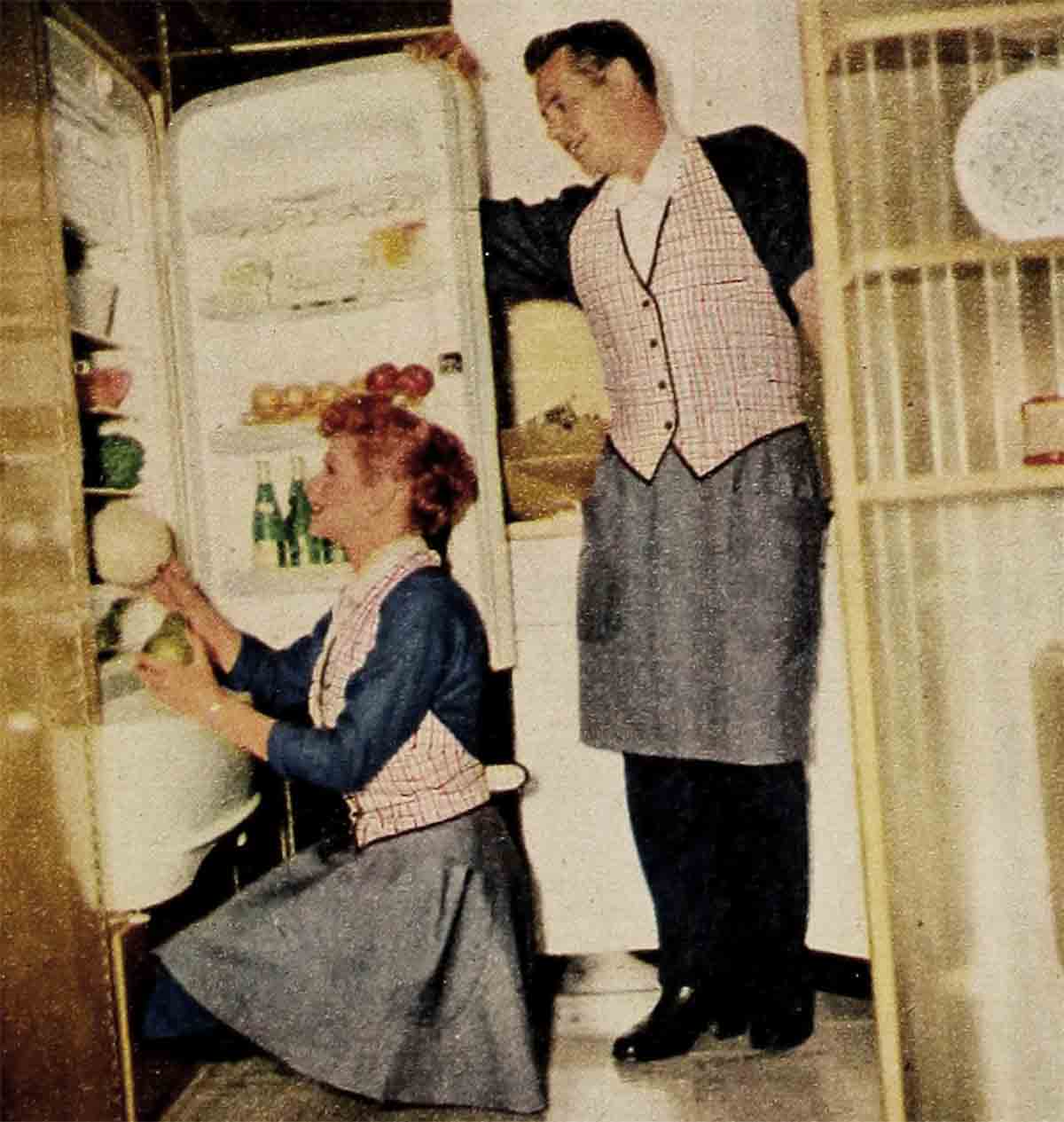
Two hours later, Desi Arnaz walked out of MGM with a smile as wide as the east gate. Via long distance telephone he had arranged with Jim Redman, president of New Moon, Inc., to have one of their deluxe trailers driven to Hollywood. The $5,500 gift was to be a complete surprise to Lucy. In answer to a few company queries, Desi had specified that he preferred twin beds, twin sinks, and a combination tub and shower in his mobile home. Instead of the customary double-deckers, he requested two nursery-size beds for his children.
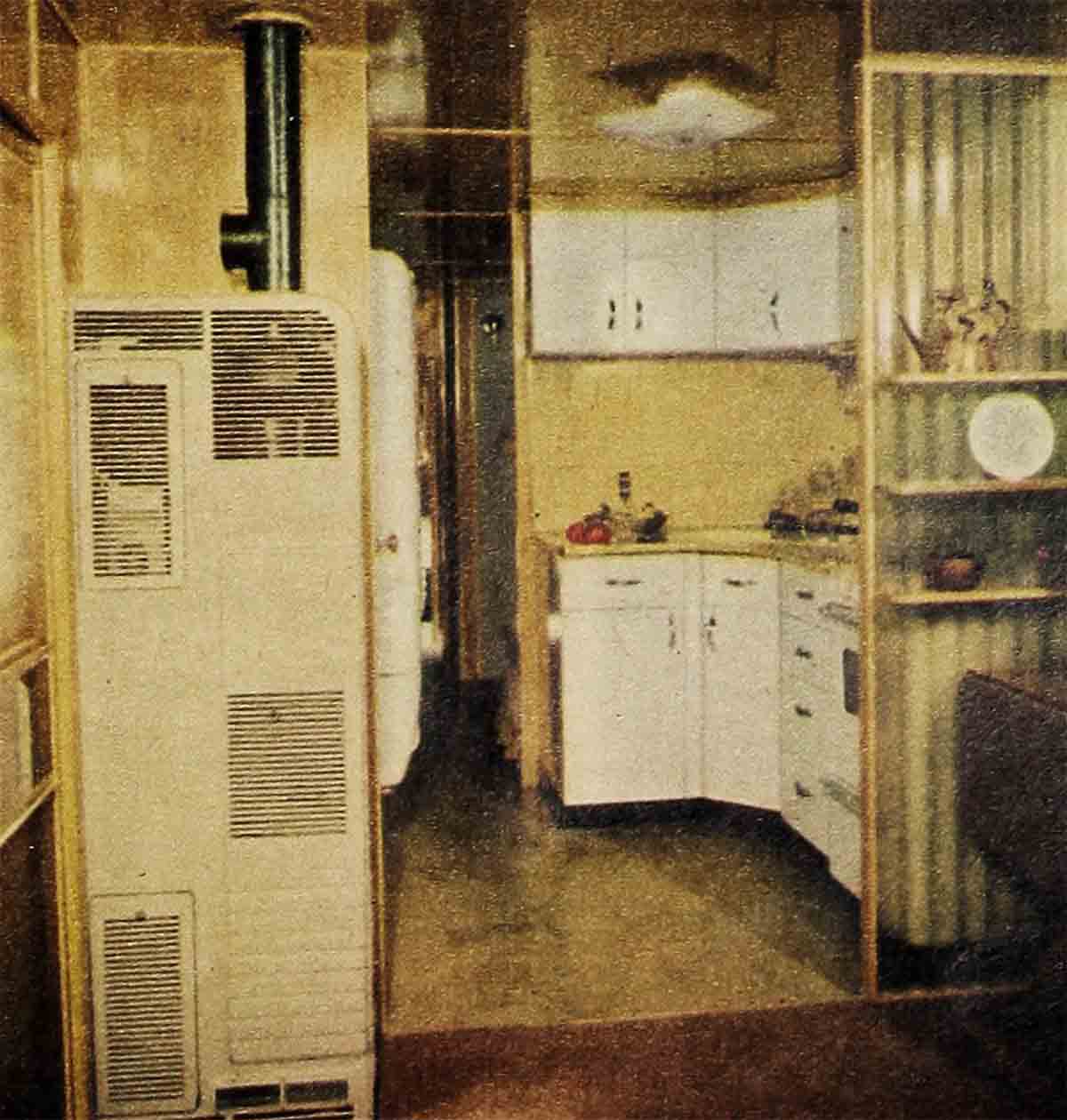
“As for the decorating,” he told Redman, “I leave all that up to you. Just remembers my wife is a redhead.”
Lucy’s surprise package was timed to coincide with her arrival for work at MGM. Under the guise of showing his wife where he had been taking trailer-driving lessons, Desi drove out between the sound stages to the extremely realistic small town street known at the Metro lot as Andy Hardy Village.
Parked in front of Judge Hardy’s white clapboard house was forty-one feet of streamlined, polished aluminum on wheels.
“It’s a beauty,” Lucy said, “but can you really drive that giant, Desi?”
Arnaz grinned. “Handles like a baby carriage.” And taking the ignition key out of his pocket, he slipped it into Lucy’s hand. “Go ahead,” he suggested. “Try it.”
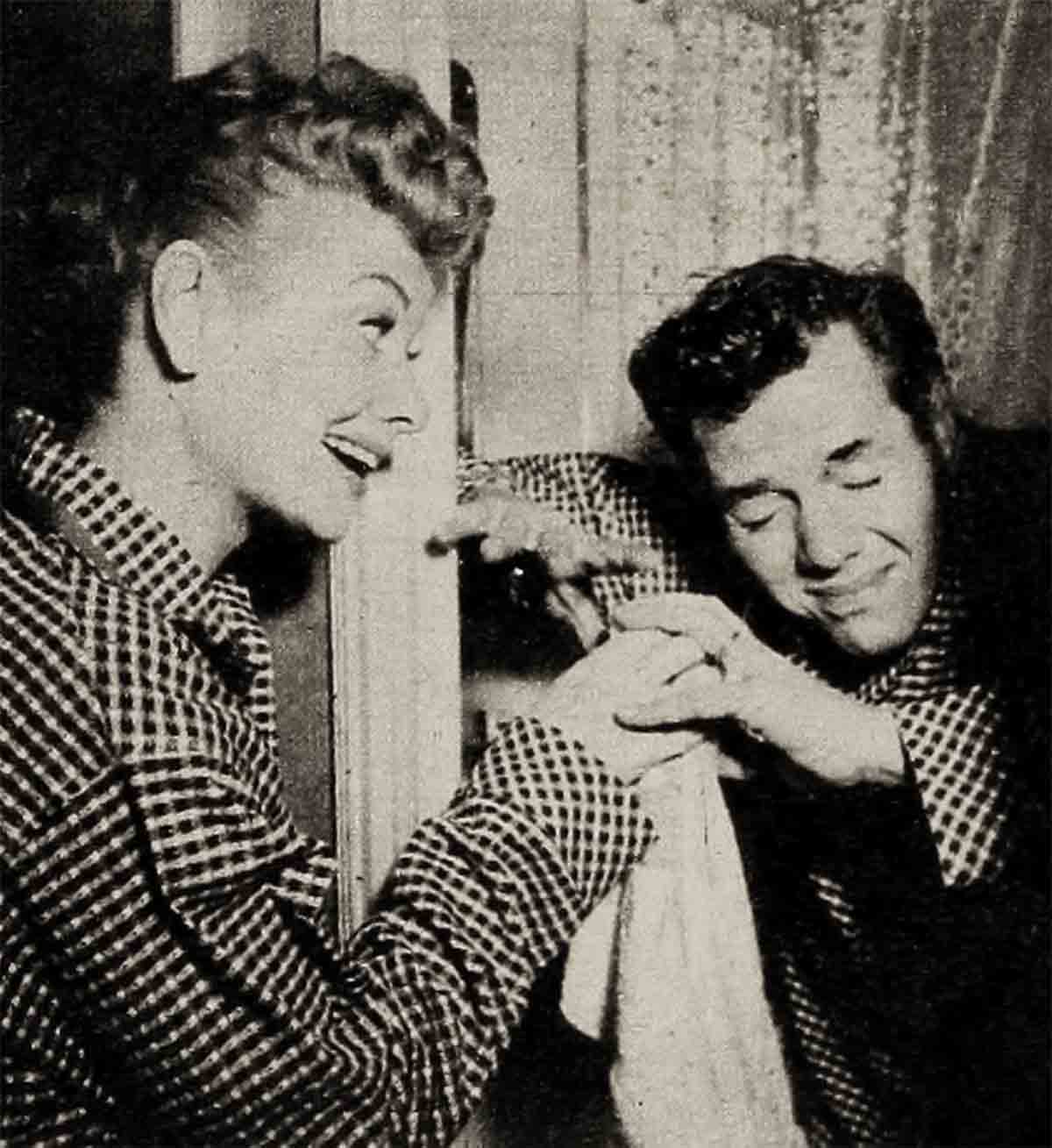
Attached to the key was a tag reading, “To Lucy, with Love. Desi.”
Lucy read the tag. Eyes brimming, she turned to her husband. “Does this mean that—”
Desi took her in his arms and kissing her near the ear, he said, “Surprise for you.”
Lucy. pulled back. “I don’t believe it. This must be a gag. That trailer can’t be real. It’s a studio mock-up.”
Desi howled. “Go inside and make sure.”
To Lucy the interior of the trailer proved twice as exciting as the gleaming exterior. Within its bright framework, it boasted four separate rooms and a full bathroom.
Each section of the Desilu mobile home is scientifically engineered for maximum comfort, livability and beauty. It was the beauty of it all that first took Lucy’s breath away.
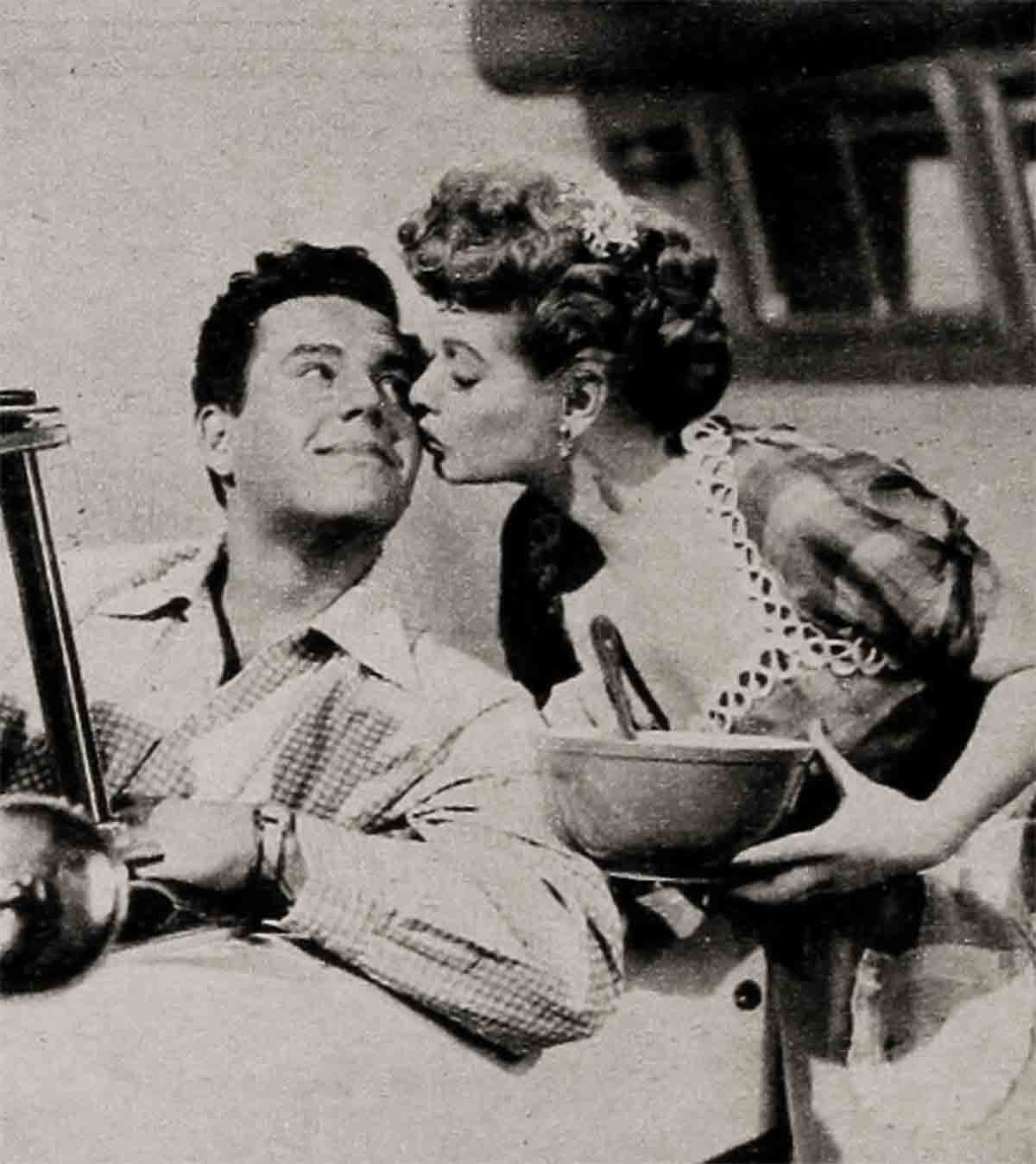
The livingroom, which is located at the trailer’s front end, is decorated in shades complimentary to a redhead—rust brown, coral, and turquoise. The accessories add a bright, cheerful note—brass lamps, planters, and serving dishes. Although the trailer is only eight feet wide, the livingroom also boasts a full-scale couch tastefully upholstered in a durable tweedy fabric. The bolsters of this piece are easily removed so that it makes up into a single bed. A wing chair and a wrought-iron swivel chair make up the main conversational grouping.
Another corner of the same room features a drop-leaf table with matching chairs that form into an expandable dining unit, capable of seating four to six people. Unobtrusively beside the door stands the compact Coleman 3 Cond-Air combination heater and air cooler. In the winter it keeps the mobile home as warm as a house. In the summer the blower cools the trailer by a continuous flow of fresh air from outside.
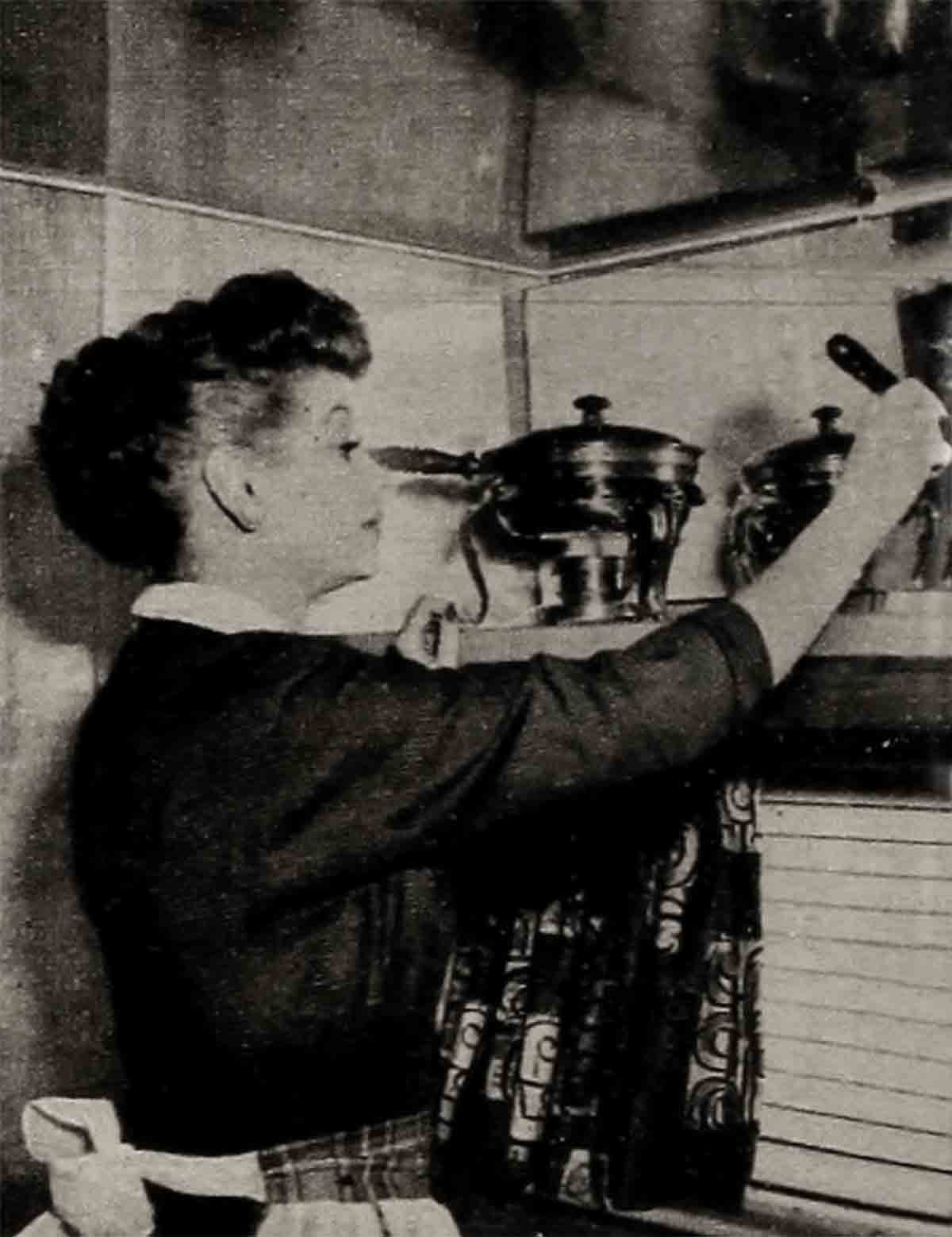
When Lucy first stepped into her trailer and looked around, she was impressed that in such a compact area so much furniture did not look crowded. Knowledgeable planning has prevented that. Two large windows on opposite sides of the trailer give the room a look of spaciousness. The mirror behind the couch creates an illusion of extra length and even the storage shelf which now holds Desi’s collection of brass cooking pots, is adroitly spotted above eye level so as not to crowd into the room. The total effect is a triumph of design, or as Lucy puts it, “For a livingroom, it’s the greatest.”
“The greatest” is the phrase she used and still uses in describing every room in the mobile house. The yellow and white kitchen is partly hidden behind a corrugated partition of plexiglass. When the talented comedienne saw that, she was charmed.
“If this isn’t the most compact, utilitarian kitchen!” she bubbled. “Really, this is absolutely the greatest!” She looked into the four-burner stove, then ran her hand over all the kitchen counters which are finished in grey formica. She opened the six-foot refrigerator which also has freezer space for twenty-eight pounds of food, and finally, as her eyes drank in all the furnishings, she turned to her grinning husband and said with amazement, “This kitchen has more drawers and more cupboard space than you’ll find in most Hollywood apartments.”
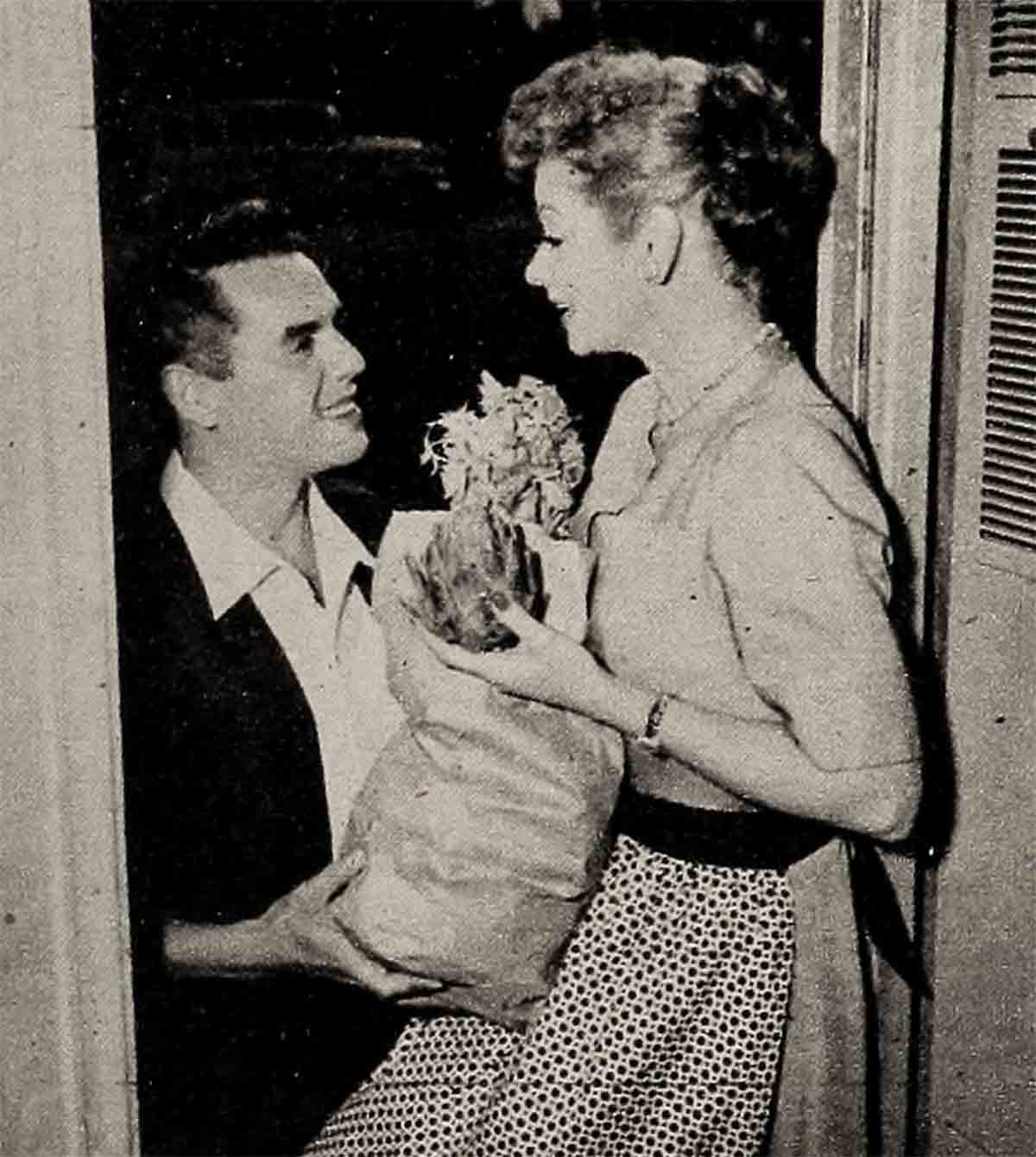
It so happens that Desi and Lucy are both good cooks which means that they can appreciate their carefully designed Youngstown trailer kitchen. Through the years, even before they got their mobile home, many of their meals were joint creations. Desi specializes in well-seasoned salads and steaks while Lucille attends to the garlic toast they both love, and concocts too-rich desserts.
Because she is a mother, Lucy also appreciates the care and thought that went into her trailer nursery. Here is a room with two little beds, frilly curtains, and cute stuffed animals. When Lucy first entered it, she let go a scream of pure delight. “No, Desi!” she cried. “This is the end. The absolute end. Have you ever seen anything so darling?”
Of the four rooms in the trailer, the nursery probably means the most to Lucy and Desi, because they’ve always felt that their immediate family of four should spend lots of time together without the benefit of a nurse or a well-intentioned grandmother.
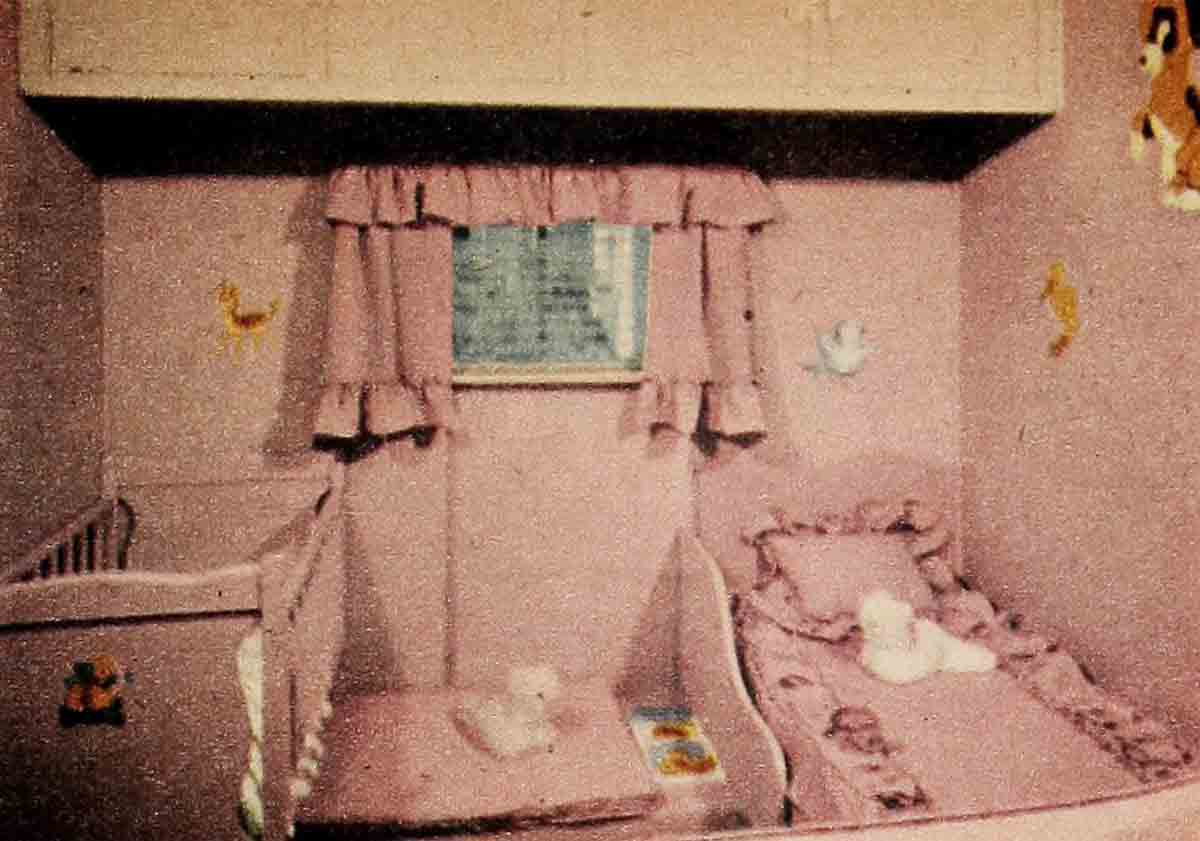
“There’s something about the plain physical fact of being in small quarters that seems to give our children a feeling of warmth and family solidarity,” Lucy says. “Before we got the trailer, it was always a federal case to take the children with us on any trip, no matter how short. We had to move cribs, play pens, clothes, baby food, the whole works. Now, life is much simpler. We keep the trailer well-stocked and ready to roll at a moment’s notice. If Desi wants to take a few days off and go to the desert or do some fishing off Balboa, we just toss the children into the nursery and we’re set.
“At one time we thought seriously of building a weekend house. First, we thought we’d build it in the desert near Palm Springs. Then we changed our minds and decided to build one in the mountains. Then Desi said he’d like to have a house near the ocean.
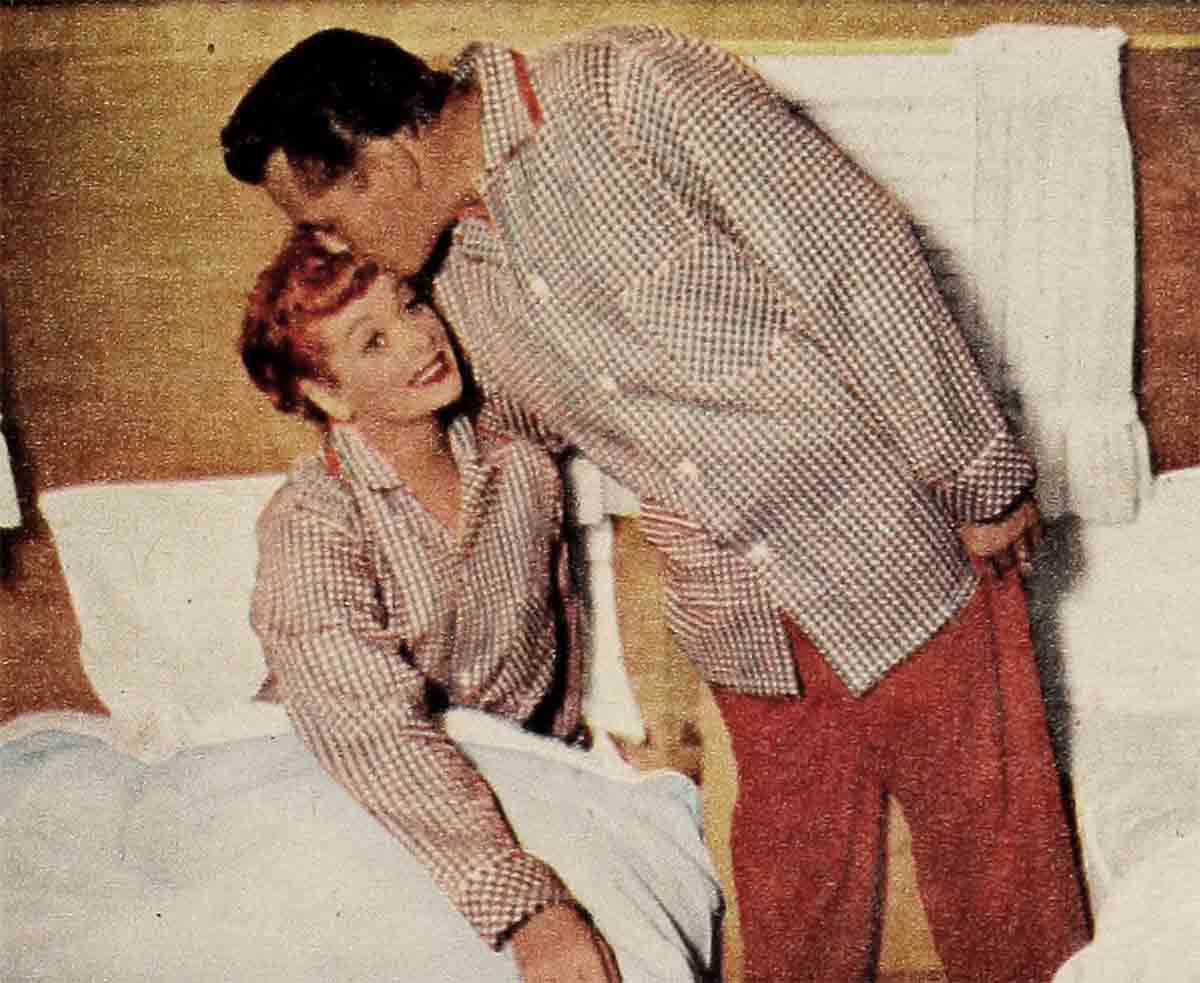
“For us the trailer came as the perfect answer. In Palm Springs we own a piece of land near the golf course and connect our New Moon to the club’s electric outlet. At Newport we park in the grounds of the Villa Marina Motel where we’ve always stayed to be near the dock. While Desi fools around on his boat, I can be at home with the children.”
The trailer is more than a vacation home to Lucy and Desi. For the last several months they’ve used it constantly in their work. At Metro it followed them around from stage to stage, from back lot to special locations. They used it as an office, snack bar, private diningroom, and lounge for visiting guests.
As soon as The Long, Long Trailer was finished, they had the mobile job moved to their home business location at Motion Picture Center where from Monday through Thursday of each week, they labor on I Love Lucy.
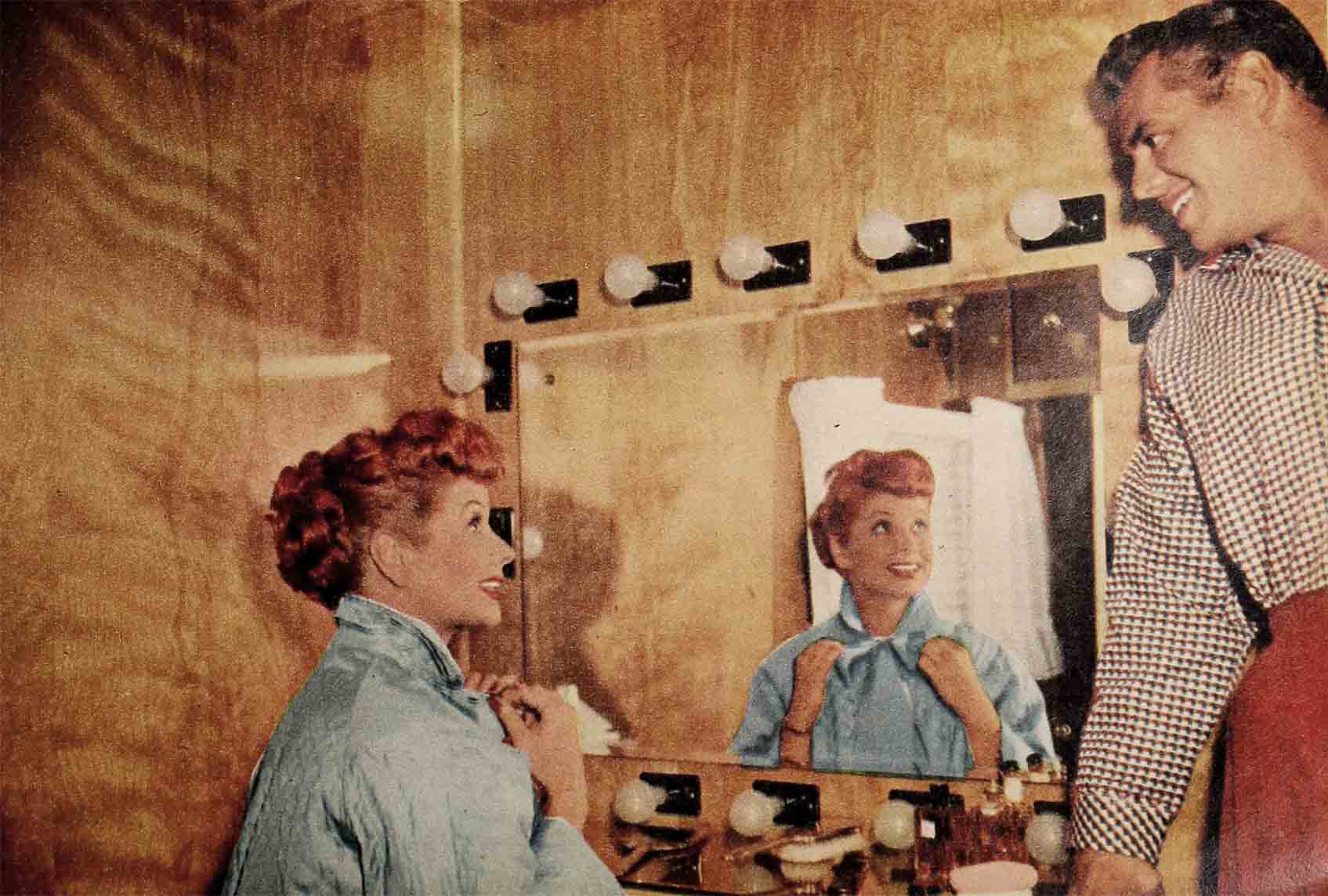
Here again, it serves mulitiple purposes. The trailer’s master bedroom has enough floor space to accommodate twin beds or a double bed and night stand. Windows on three sides keep the room light and well-ventilated. But what Lucy likes best about the room is the theatrical make-up mirror and dressing table which Doris Christensen, the company’s decorator, had installed along one wall especially for the busy Lucy.
“I’ve worked in lots of studios,” Lucy says, “but I’ve never had a dressing room I wanted to live in before. This one’s got everything.”
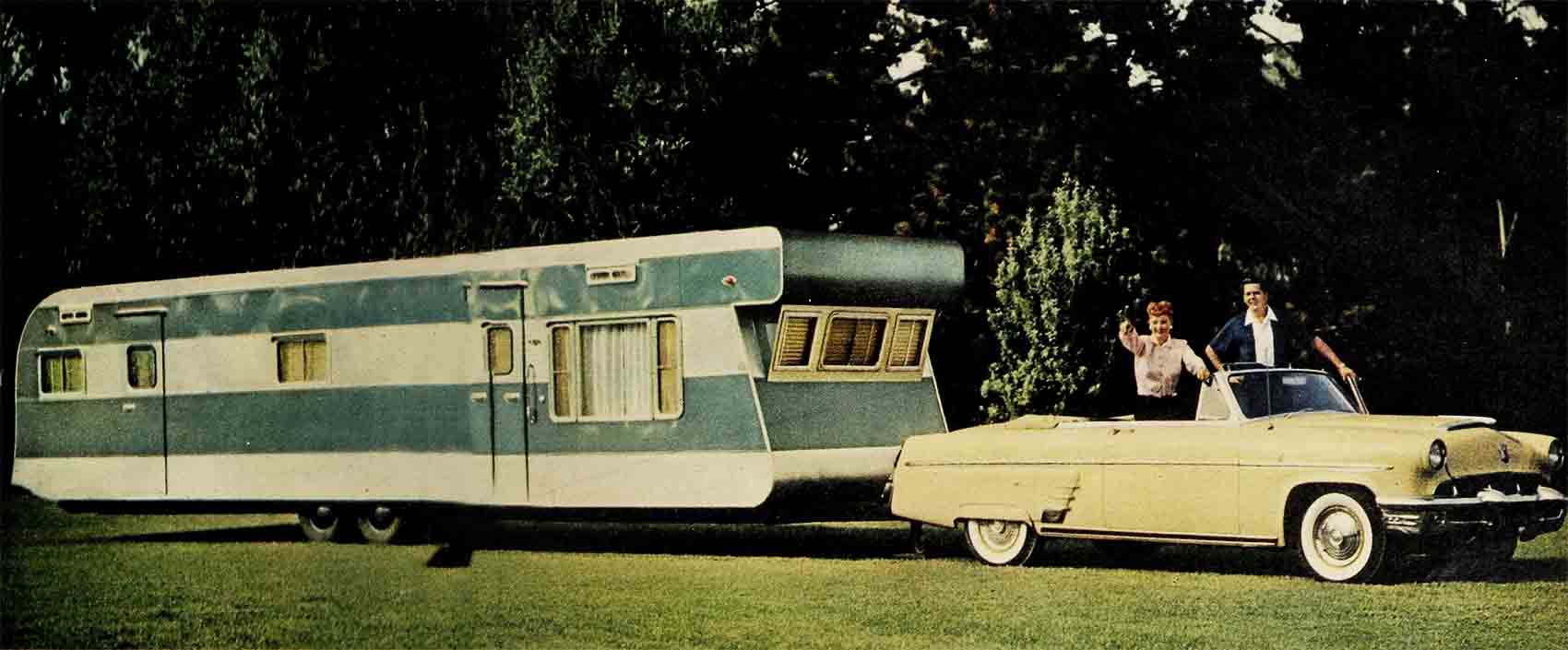
By joining the ever-growing fraternity of trailer owners throughout America, a fact which MGM publicized during the production of their film, Desi and Lucy have attracted a whole new group of fans who write to them regularly. Letters pour in daily from itinerant workers who use trailers on special construction jobs, from servicemen and their families who live in trailers and move from post to post, and from newlyweds whose futures are so undetermined that they have invested in a mobile home rather than a stationary one. And of course there’s plenty of new fan mail from the retired couples who live well and simply in trailer camps throughout the country.
All of these correspondents have complimented Lucy and Desi on making a picture about trailer life, and several hundred have volunteered. to act as technical advisers on any future trailer film.
Only last week the Desilu organization received a letter from an old-timer who had been having a wonderful time trailer-touring the United States for the last thirty years.
“Dear Desi and Lucy,” he wrote, “I understand by the morning paper that you two folks have bought yourselves a trailer. For folks who live in Hollywood that shows a lot of good common sense. I’ve owned a trailer on and off for the past thirty years and I can tell you that you only live once and that a trailer is the best way to see the world before you leave it.”
Lucy plans to frame that letter and hang it in her New Moon trailer.
THE END
It is a quote. MODERN SCREEN MAGAZINE MARCH 1954





No Comments